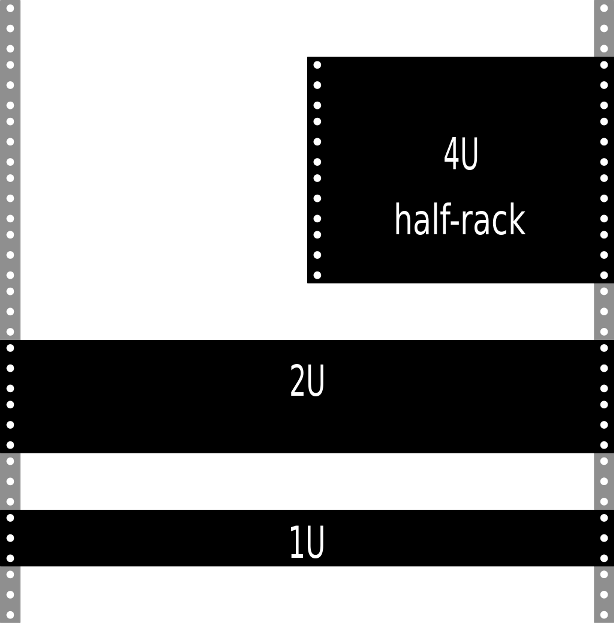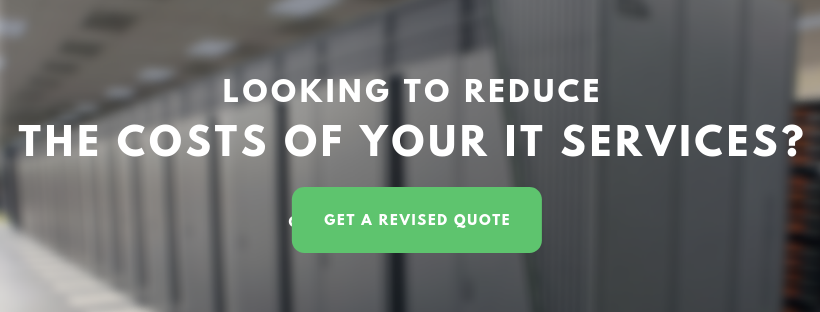
Understanding colocation pricing and what to expect in 2019 is very important for your business as you discover how vital it is to make sure that your data is secure and available to you at all times. Read on to learn more about colocation pricing. If you are looking for a data center that will provide optimum protection for your data and work with you to provide the best colocation pricing package possible, contact Digital Service Consultants today.
What Impacts Colocation Pricing?
Your business is unique, so your requirements will vary from other business’ – and so will your colocation pricing. There are a few main factors that determine the price you will pay for colocation hosting. These include:
- Rack Space: Data centers are equipped with racks that are designed to hold servers and other IT equipment. Rack space refers to the physical amount of space that your server(s) will take up on a rack.
- Setup: You will find that you will need to pay an initial set up fee when you begin colocation hosting. Your equipment will need to be physically moved to the data center and then installed. This setup requires time to perform and may be done by the internal team at the data center or someone in your IT department.
- Internet: You will also require an Internet-based VPN connection, which will be the way that you can access your equipment at the data center from your office. Often you will need an above-average bandwidth to compensate for the distance between the two locations so that your software can operate at high enough speeds. You may also need to purchase dedicated IP addresses as your current Internet Service Provider may not service the data center that you are going to use.
- Support: Colocation is not a managed service, however, some data centers may provide this service to you for an additional fee. You will need to determine who will be responsible for monitoring and maintaining your equipment at the data center. If you are going to be doing that yourself, you will need to make sure that you send someone to the data center on a regular basis. Another option is to pay for an outsourced provider to be responsible for monitoring your equipment on a regular basis.
Leasing is more expensive in Europe and cross connections are more expensive in North America
Differences in Colocation Pricing Worldwide
Leasing Rates Higher in Europe:
Colocation leasing rates tend to be higher in European markets as compared to North American markets. According to Telegeography.com, you will probably pay about 20% more for a 2-year lease for a 4 Kw density cabinet than you would for the same lease in North America. This is a rough estimate and prices will vary between different operators.
Cross Connects Cost More in North America:
A cross connect is a physical cable that connects two different termination locations in a data center. These hardwired cables give you higher performance, better reliability, and lower latency to enable rapid data exchange and disaster recovery. On the other hand, you will pay much more for cross connects in North America than you will in Europe; almost 5 times more. For example, the median rate of a fiber cross connect in the United States is approximately $300 per month, compared to the same cross connect in Europe, which would only cost you about $60.

Cross Connect is a physical cable that connects two different termination locations in a data center for higher performance
You Should Consider Your Total Cost of Operations When Comparing Prices
Your total cost of operations of TCO take into consideration both the amount that you pay to lease the cabinet space for your equipment and the number of cross connects that you require. Because cross connects are more expensive in North America, the more you need the higher your TCO will become. For example, if you are leasing a standard cabine and you require 5 cross connects, the cross connects will make up 50 of the total price that you will pay, however in Europe those same 5 cross connects would only amount to 20 % of your TCO.
You Can Expect to Pay Higher Prices for Colocation Services in Prime Areas
Generally speaking, you can expect to pay higher colocation prices in areas where you can meet the right partners and you can connect with the right people to advance your business. Businesses are willing to pay more to be located in a facility where their networking potential is greater.

Take into consideration your TCO when choosing a colocation provider
Larger Scale Colocation Is Usually Less Expensive
If you require large-scale colocation, you will probably find that the price in considerably less expensive. On average, if you are leasing 100 kWs of space as opposed to only the standard 4 kWs, you could save about 20 percent.
Colocation Hosting Is More Cost Effective Than Having a Dedicated Server
Some businesses choose to use a dedicated server as their IT solution. This means that they lease a dedicated server that isn’t shared with anyone else. Over the long term, paying for a 1U server colocation is actually cheaper. A mid-range dedicated server provider usually costs about $200 per month whereas a 1U colocation hosting service will cost about $50 per month. When you spread that cost over an entire year, you will save about $1,800 a year with colocation.

Over the long haul, colocation is cheaper than purchasing your own dedicated servers
How Does Rack Pricing Work?
Colocation pricing is largely determined by the amount of space your equipment takes up. In order to understand how colocation pricing works, it is helpful to learn some of the terms used when figuring out the cost and what those terms refer to.
1U:
The unit of measurement used when talking about rack space is “U”, which is equal to 1.75 inches in height. A piece of equipment that is 3.5 inches high would take up 2U of rack space.
Full Rack:
A typical full-sized rack cage found in data centers is 42U high and either 19 or 23 inches wide. The individual pieces of equipment held on these racks are usually anywhere from 1U to 4U high. Most rack-mount servers take up 1-2 Us of space.
Half Rack:
The term half rack can be used to refer to:
- A piece of equipment that only takes up half the width of a rack frame – two such pieces of equipment can be placed side by side on a rack.
- A piece of equipment that only takes up half the depth of a rack frame – two such pieces of equipment can be placed on the same rack, one in the front and one at the back.
- A rack enclosure that is half the height of a full rack (22U tall).
Rack space picture – The following diagram shows a rack with sample component sizes including an A/V half-rack unit.

Quarter Rack:
The term quarter rack usually refers to 10U of space on a full sized rack or about one-quarter of the space on the rack.
How a High-Density Cabinet Affects Colocation Pricing
Space is expensive: The cost of the physical space within a data center is relatively high. Just like if you were to rent a small apartment in a large city, you will be paying a premium price for a relatively small space, so you want to make the most of the space that you have. That’s what high-density cabinets are like.
How high-density saves on space: With high-density colocation, your provider tries to maximize your colocation equipment in the limited space that you have. The current standard for an average colocation cabinet is 4kW. With high density, your provider will pack their racks with 1U servers to raise the amount of kW per cabinet, sometimes increasing the amount on a cabinet to as much as 30kW instead of only 4kW. Since you are charged per square foot of space, high-density colocation will save you money by giving you more kW per square foot.
Challenge of high-density colocation: The difficulty with high-density cabinets is trying to keep them cool because now you have many servers packed tightly together on the same rack, generating a huge amount of heat. Click here to read about various cooling solutions for high-density servers.
High-density colocation is usually less expensive per square foot to lease
You may also be interested in the following articles on Colocation:
Colocation Hosting: The Definitive Guide To All You Need To Know (2018 Version)
The Difference Between Managed Hosting and Colocation Hosting
Understanding The Benefits Of Colocation Hosting
1u Colocation: Have Questions? Get Instant Answers Here
Digital Service Consultants: For the Best in Colocation Pricing and Service
Digital Service Consultants is your best choice for colocation hosting for both pricing and service. DSC has been a trusted name in the IT industry for over 30 years. We are experts in the IT field and can provide you with a full range of internet-related services including, colocation, cloud backup, system monitoring, software hosting, dedicated email, website development and implementation, web hosting, e-commerce, security, and a variety of related products and services. We also provide network support for Linus, Microsoft server and workstation platforms, Fortinet firewalls, and Cisco systems. Contact us today for all of your internet-related requirements.
“By far the best in technical and customer services!” – Trenton

DSC has been a trusted name in the IT industry in Atlanta for more than 30 years
DSC Gives Back to the Georgia Community
DSC is proud to be part of a thriving Georgia community and we care enough about our community to want to give something back. That is why we started the “Next Generation” training days. During the training, our students learned about the history of CPUs and GPUs. The training focused on the performance and success of different models and brands and which ones excelled during their various time periods. You can access an audio recording of the training on the DSC website for free. Click here to listen to this informative podcast.





